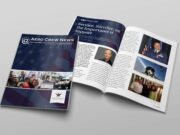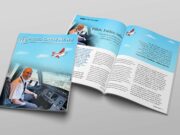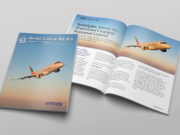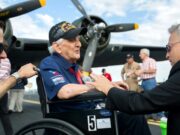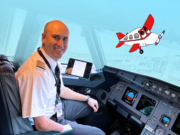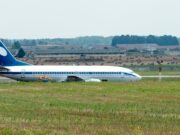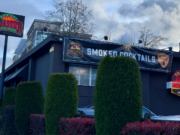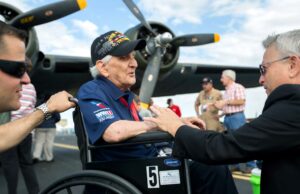Although it’s a topic most would prefer not to discuss, each of us has made mistakes in our past. As much as we wish to put only our best foot forward and show a prospective employer the absolute best version of ourselves, the reality is that you will need to be as comfortable talking about your mistakes as you are your successes and highlights. Whether it’s less than stellar academic grades, flight training failures, or traffic violations, most applicants have something in their history they wish they could erase. What’s important in the application and interview process is to understand that these were not events to be ashamed of, but rather experiences that should be considered learning opportunities that you used to better yourself as you moved forward.

For many reasons – embarrassment, fear of being passed over for a position, and many others – we would prefer to show only our most positive attributes and impressive experiences in application and interview scenarios. It’s only natural that we wish to display what we are proud of and leave mistakes in the past. However, properly addressed errors from your past will help show that you have grown as a person and that you handle failure in a positive way. Of course, I am not saying that all past mistakes are easily explained away, but instead that many people believe their mistakes are much bigger than they are, and that there is nothing they can do to minimize them.
To be considered for pilot positions, thorough training, education, and background checks will be performed. What this means to you as an applicant is this – honesty is crucial. As much as you may not want to discuss certain things, I guarantee that a conversation revolving around your false and inaccurate application information is even less desirable. So as a hopeful employee filling out an application, or a prospective employee in an interview, complete honesty is the best policy. This entails providing all information requested on the application, as well as any pertinent details that will help company representatives fully understand the situation. However, admitting to any shortcomings is only one part of the process. Recruiters and interviewers will also ask about these events in person. Your attitude towards a past mistake plays a significant factor in whether it will be a hindrance to your hiring. Do you take ownership of a mistake, or do you attempt to put the blame on someone else or other external factors? Did the mistake significantly derail your progress, or did it serve as a minor hiccup that you overcame? It’s not your shortcomings in life that define you, it’s your reactions to them and how you handle similar situations in the future.
Let’s use past checkride failures as an example. Knowing that this is something you will need to disclose and discuss in an interview, it is paramount that you prepare. Your goal should be to walk into an interview room confident that you can discuss past shortcomings and ensure the interviewers understand how you have grown from them. Attempting to come up with these details on the fly will only add to your already elevated stress levels. The overall idea when discussing parts of your past you are not necessarily proud of is to admit what occurred, take ownership of the situation, and explain what you did moving forward to either solve the issue or to ensure that you did not make the same mistake in the future. If you discuss these events only explaining what went wrong, you are not providing any insight into your personal growth or indicating that you learned from the experience. Explaining why you failed to meet the standards required for a maneuver on a checkride is a good start, but it is just as important to show that you took something positive away from the event. Maybe you learned that your checkride preparation was insufficient and made sure to dedicate more time to studying for every subsequent checkride. Or maybe you chose to fly in weather conditions that you had not experienced before and learned not to pressure yourself into completing a checkride unless you were truly comfortable with the weather. Expressing to a recruiter or interviewer that even though the outcome was not what you had desired, you learned a valuable lesson give them confidence that you learn from your mistakes and will apply what you learned in future training programs.
I am a big believer in looking for the silver lining in all situations, and I believe you can take many positives from a checkride failure. If you can highlight learning experiences and show how you have applied them to future checkrides, recruiters and interviewers can be confident that your failure was not indicative of a deeper issue. Do not be afraid to discuss mistakes in your past. Instead, think about all that you learned from the experience, and how that allowed you to grow as a person and a professional.


